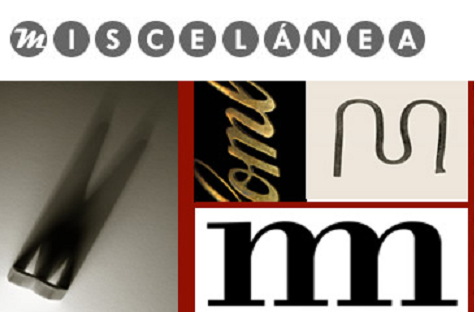“Civil War inside my Body”. Two Narratives of Dying in Contemporary Anglophone Film”
DOI:
https://doi.org/10.26754/ojs_misc/mj.20079761Palabras clave:
Muerte y proceso de morir, Rol de persona enferma, Política del cuerpo, Modelo biomédico, Cine contemporáneoResumen
Tras la revolución sexual de los años setenta, la muerte aparece ahora como el último tabú en las sociedades contemporáneas. Está por supuesto presente en nuestra vida cotidiana, pero se hace lo posible por silenciarla. “El fin” ha sido un tema recurrente desde el punto de vista cultural durante siglos. Sin embargo, el proceso de morir sigue siendo temido e infrarrepresentado a día de hoy. Durante las dos últimas décadas han aparecido libros y películas que han abierto nuevos debates sobre la muerte y el proceso de morir, sobre los cuidados paliativos y sobre la eutanasia. El presente artículo analiza dos ejemplos de narrativas femeninas de la muerte apoyándose en teorías de especialistas en la enfermedad y la muerte como David Morris, Ira Byock o Susan Sontag, autora del clásico La enfermedad y sus metáforas.
Wit (Ingenio) ofrece una visión irónica y profunda del proceso de la muerte de Vivian Bearing, catedrática de poesía metafísica. Tras un diagnóstico de cáncer de ovario en fase terminal, Bearing redefine su enfermedad como reto intelectual, enfrentándose a ella como a una batalla por el conocimiento.
La protagonista de My Life Without Me (Mi vida sin mí) es totalmente diferente de Bearing: sin educación formal, vive en una caravana con su marido y sus hijas. Tras ser diagnosticada de cáncer de ovario con metástasis, decide hacer una lista de “cosas que hacer” y trata de prepararlo todo para que “su vida” siga sin ella.
Descargas
Referencias
BORRÀS CASTANYER, Laura. 2000. “Hermenéutica del cuerpo”. In Escenografías del cuerpo. Madrid: Fundación Autor: 7-25.
BYOCK, Ira. 2002. “The Meaning and Value of Death”. Journal of Palliative Medicine 5.2 (May 2002): 279-288.
CALLANAN, Maggie and Patricia Kelley. 1997. Final Gifts. Understanding the Special Awareness, Needs, and Communications of the Dying. New York: Bantam Books.
COIXET, Isabel. Dir. 2004. Mi vida sin mí/ My Life Without Me. Barcelona: Filmax Home Video.
DESHAZER, Mary. 2003. “Fractured Borders: Women’s Cancer and Feminist Theatre”. National Women’s Association Journal 15.2 (Summer 2003): 1-26.
DIAMOND, Irene, and Lee QUINBY. (eds.) 1988. Feminism & Foucault. Reflections on Resistance. Boston: Northeastern U.P.
DUNN, Nell. 2002. Cancer Tales. Charlbury: Amber Lane Press.
EDSON, Margaret. 1999. W;t. New York: Faber and Faber.
FOUCAULT, Michel (1963). 1966. El nacimiento de la clínica. Una arqueología de la mirada médica. México DF: Siglo XXI.
FOX, Renée C. 1989. The Sociology of Medicine. A Participant Observer’s View. Englewood Cliffs: Prentice Hall.
FREUND, Peter E.S. and Meredith MCGUIRE. 1991. Health, Illness and the Social Body. A Critical Sociology. Englewood Cliffs: Prentice Hall.
FUENTES, Carlos. 2001. “Introducción”. El diario de Frida Kahlo. Un íntimo autorretrato. Barcelona: Círculo de Lectores: 7-24.
HUDSON JONES, Anne. 1990. “Literature and Medicine: Traditions and Innovations”. In Clarke, B. and W. Aycock. (eds.) The Body and the Text. Comparative Essays in Literature and Medicine. Lubbock: Texas Tech U.P.: 11-24.
KINCAID, Nanci. 1997. “Pretending the Bed is a Raft”. Pretending the Bed is a Raft. Stories by Nanci Kincaid. Chapel Hill: Algonquin Books: 189-241.
KÜBLER-ROSS, Elisabeth. (1972) 1993. Sobre la muerte y los moribundos. Barcelona: Grijalbo.
KUSHNER, Tony. 1994. Angels in America. London: Nick Hern Books.
LAMONT, Rosette C. 1999/2000. “Coma Versus Comma: John Donne’s Holy Sonnets in Edson’s W;t”. Massachusetts Review 40.4 (Winter 1999/2000): 569-75.
MACPHEE, Rosalind. 1996. Picasso’s Woman. A Breast Cancer Story. New York: Kodausha International.
MCLAREN, Margaret. 2002. Feminism, Foucault, and Embodied Subjectivity. Albany: State University of New York Press.
MCNAMARA, Beverley. 2001. Fragile Lives. Death, Dying, and Care. Buckingham and Philadelphia: Open U.P.
MILLER, Susan. 1998. My Left Breast. Included in O Solo Homo: The New Queer Performance. New York: Grove Press. 93-120.
MORRIS, David. 1991. The Culture of Pain. Berkeley: University of California Press.
NICHOLS, Mike (dir.). 2001. Wit. New York: HBO.
SAWICKI, Jana. 1991. Disciplining Foucault. Feminism, Power, and the Body. New York and London: Routledge.
SCHNEIDER, Rebecca. 1997. The Explicit Body in Performance. London and New York: Routledge.
SEALE, Clive. 1998. Constructing Death. The Sociology of Dying and Bereavement. Cambridge: Cambridge U.P.
SONTAG, Susan. 1979. Illness as Metaphor. New York: Vintage Books.
STATON, Jana, Roger SHUY and Ira BYOCK. 2001. A Few Months to Live. Different Paths to Life’s End. Washington, D.C.: Georgetown U.P.
TURNER, Bryan S. 1995. Medical Power and Social Knowledge. London: Sage.
WEENOLSEN, Patricia. 1996. The Art of Dying. New York: St Martin’s Press.
WENDELL MOLLER, David. 1996. Confronting Death. Values, Institutions, and Human Mortality. New York and Oxford: Oxford U.P.
Descargas
Publicado
Número
Sección
Licencia
Derechos de autor 2007 Marta Fernández Morales

Esta obra está bajo una licencia internacional Creative Commons Atribución-NoComercial 4.0.


